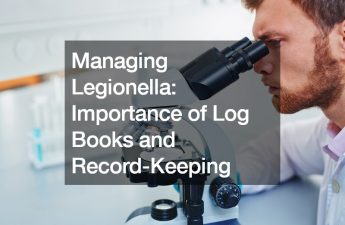
Most families spend a significant portion of their time indoors. Since home should also be a relaxing and safe place for your family, knowing how to keep them healthy is essential. To become a healthy homes expert, you should deeply understand creating and maintaining a healthy living space. This article will help you understand ten ways you can become a healthy home expert.
1. Finding the Right Coverage
Having the right coverage helps keep the home healthy and secure by providing the means to address unexpected events. For example, if perils such as fire, rain, or vandalism lead to property damage, you can do timely repair, thus avoiding further deterioration. If repair is not apt, some damage can lead to the proliferation of mold and other unhygienic conditions, such as bacteria growth.
To become a healthy home expert, you should know the different insurance types available. You can start with categories such as Christian insurance, landlord insurance, renters’ insurance, or home insurance. Under home insurance, you can find different policies, such as HO-1 to HO-2. Understanding the different policies available and their specifics can help you get the right insurance for your home.
Apart from knowing the different types of insurance available, you should also understand your needs. What’s the value of your home and what risks are you likely to face? Next, research current insurance providers’ policies, coverage options, and reviews. Request them for a quote for their services. Then, consider which package will offer you the most value for money.
2. Choosing Care Providers

If you want to keep your family and home healthy, you should have the right care providers by your side. Healthcare providers, such as dentists and doctors, have expertise in preventing, treating, and maintaining good health. They can advise on different conditions, such as allergies and bone problems. Apart from physical health, they help promote mental health by helping your family navigate stress and problems.
As a healthy home expert, you should know the different care providers available and their specialties. It also depends on your family composition. For example, you don’t need a pediatrician if you don’t have young kids. You can have some core care providers, such as a family physician, a dentist, an optometrist, and a gynecologist. Before engaging any care provider for the long-term, ensure they have the right credentials.
A good place to start when looking for healthcare providers is your inner circle of friends and family. Ask them if they visit a family doctor within the area who’s experienced and reliable. You can also do a simple search online and then check reviews. Before committing to a healthcare provider, ensure they accept your chosen insurance method.
3. Addressing Concerns
As a healthy home expert, you’ll need to be equipped to address multiple concerns that arise in a home. One of the most common categories is safety and security. Issues like poor electrical wiring, slippery surfaces, and leaking pipes. Another concern is indoor air quality issues such as mold growth, allergens, and dust. According to the World Health Organization, indoor air pollution kills 3.2 million people each year in the world.
Sometimes concerns relate to mental health. For example, a child may feel anxious wearing metal braces, but switching to Invisalign braces could help. The best strategy is to have a resource network ready. Issues often arise when you’re least prepared, so knowing where to get help when you need it the most can help you. Some resources are readily available in the community for addressing mental health, safety, and housing concerns.
A good way to keep concerns at bay is by doing regular inspections. Some things that require regular inspections include indoor air quality, plumbing, electrical fixtures, and pest control. Address these issues the moment they become apparent to keep them from deteriorating. Another good tip is to reduce clutter, because it’s often a hiding place for pests and other hazards.
4. Making Improvements

Sometimes health risks are solvable with slight home improvements. While you don’t have to know every aspect of home improvement, knowing where to focus your attention and who to consult can be a game changer. Prioritize safer living spaces by addressing weak rails, damaged flooring, and bending trees. Sealing cracks and preventing leakages can promote health by improving indoor air quality and mold growth.
Some improvements, such as window blinds and treatment, can also help you save on energy bills so you can focus that money on buying healthy foods. As a healthy home expert, a good concept to learn is healthy home design. Healthy homes have proper air circulation, use safe materials, and utilize natural lighting.
Before making any improvements, consider your home needs by doing a thorough assessment. Some people hire a home inspector to identify areas that need improvement. Prioritize improvements that would have the greatest impact. A good tip for prioritizing is emphasizing functionality before aesthetics. Use materials that don’t emit toxic pollutants because the improvement will not be worth it.
5. Hiring Contractors
Hiring contractors can help create a healthier living environment for your family. You should hire contractors that can efficiently solve home problems because of their expertise. They can also address structural integrity issues, such as cracks and unstable foundations. Such problems, if left unaddressed, could pose long-term health risks, such as injuries, to your family.
You don’t need to be a contractor yourself, but, as a healthy home expert, you should know which problems a contractor can fix and where to find them. It would help if you understood how to verify contractors’ credentials, such as licenses and certifications. Some unqualified contractors can leave your home worse because of a poor job. It’s always best to hire specialized contractors rather than general ones. For example, a general electrician may not be preferable if you need someone to do air conditioning repairs.
A good place to know where to hire contractors is personal recommendations. Your friends in the neighborhood, community church, or school may have worked with a reliable contractor, which could help you get past the research phase. You can also consider local hardware stores because they sell to contractors. They may have some valuable contacts.
6. Preventing Problems

The best strategy you can use as a healthy home expert is to prevent problems from arising in the first place. Proactive measures such as fixing shaky rails ensure you won’t rush a loved one to the hospital because of an accident. Sealing gaps and emptying your waste bin means you won’t have to deal with pest infestation. Instead, you’ll have peace of mind knowing that your family is safe from such problems.
Problem prevention also saves you time and resources. For instance, if you call drain cleaners regularly to inspect your drain, you won’t have to pay for foundation or roof damage later. You’ll also protect the health of the home residents. In homes for senior adults, a seemingly small problem like a slippery floor can cause permanent damage that would require significant resources to fix. A good way to prevent such problems is to fix them when they are minor.
To prevent problems, you must have an inspection system. For example, roofs can slowly accumulate damage without your knowledge until the problem is too big. Scheduling roof inspections could keep your bills low and your family protected. Also, have a maintenance schedule to ensure all the core elements of a home are in good working condition.
7. Creating a New Space
Sometimes, small strategies such as creating space can go a long way in promoting a family’s physical and emotional health. Something as simple as adding windows in a room allows more natural light, which benefits physical and emotional health. Well-designed spaces also minimize stress. Too much stuff overwhelms the brain because it increases the number of decisions one must make.
One of the most affordable ways to create new space is decluttering. If you have a yard littered with old metals, a dysfunctional outdoor gym, or overgrown land, you can clear it and set up a plant room to grow your groceries. As a healthy home expert, you should understand biophilic design well. Nature has a way of inspiring us and promoting health.
You should consider three things when creating space: functionality, sustainability, and ergonomics. Creating space will not make sense but will lower the overall home functionality. Consider using sustainable materials when creating more space. For example, you can use reclaimed steel to create a structure.
8. Tackling Major Problems
As a healthy home expert, you may need to learn how to tackle major problems such as sewage leaks, fires, and massive pest infestations. Once you become an expert, such problems concern you, but you can remain calm as you solve the problem with expertise. You can assess and diagnose the problem with a clear strategy to determine the best course of action. You can contact wastewater companies if the sewage tank has a problem.
As you gain more knowledge, you can educate other homeowners on responding to major problems. Professional home experts have the expertise to do inspections that identify minor issues before they can deteriorate. They can also develop maintenance plans that guide regular upkeep to avoid major problems. Other problems, such as a child choking, may need collaboration with specialists to respond immediately.
To be thoroughly equipped for major problems, you can tap into professional bodies such as contractors, engineers, and plumbers. Engage them on specific major problems that could significantly impact your home. You can also seek help from local health departments to become better prepared to address issues by gaining first-aid training. A good tip is to keep learning through reputable sources.
9. Securing a Clean Space

Interestingly, many diseases are preventable by simply keeping your home clean. According to UNICEF, about 829,000 people die annually because of unsafe water, poor sanitation, and hygiene practices. Of course, increasing access to safe water and amenities such as portable restroom rentals can improve health outcomes. In your home, you can take other measures such as regular cleaning and decluttering.
As a healthy home expert, you should possess knowledge of cleaning products and techniques. Some cleaning products, such as triclosan, do more harm than good for your health. Learn from recognized websites and publications on safe cleaning products suitable for your home. Also, designate a space for cleaning products inaccessible to your kids and pets.
To start securing a clean-living space, establish a cleaning routine with daily and weekly tasks. Focus on spaces that most residents in the house are likely to touch, such as door knobs, tables, and light switches, because they are more likely to harbor germs. After cleaning, ensure proper air circulation in the home to remove body odors.
10. Honoring Your Decisions
Remember, as a healthy home expert, your decision-making capacity will keep things moving. You must learn to stand by your decisions and set an example for your family. Prioritize healthy habits such as eating a balanced diet, flossing daily, and working out. Have a system in place to help you honor your decisions. Standing by your decisions will result in less stress and build your confidence.
You should also have a system to ensure your decisions are honored when you’re gone. A wills attorney can help you craft a plan that condenses your desires into an action document. You can even let your loved ones know what you would prefer if you weren’t in the capacity to make decisions anymore.
To sum up, you don’t have to be a professional in every home aspect to become a healthy home expert. However, you need to understand what a home expert does and which professionals can help you when you need assistance. The best strategy is planning before any issue emerges.



